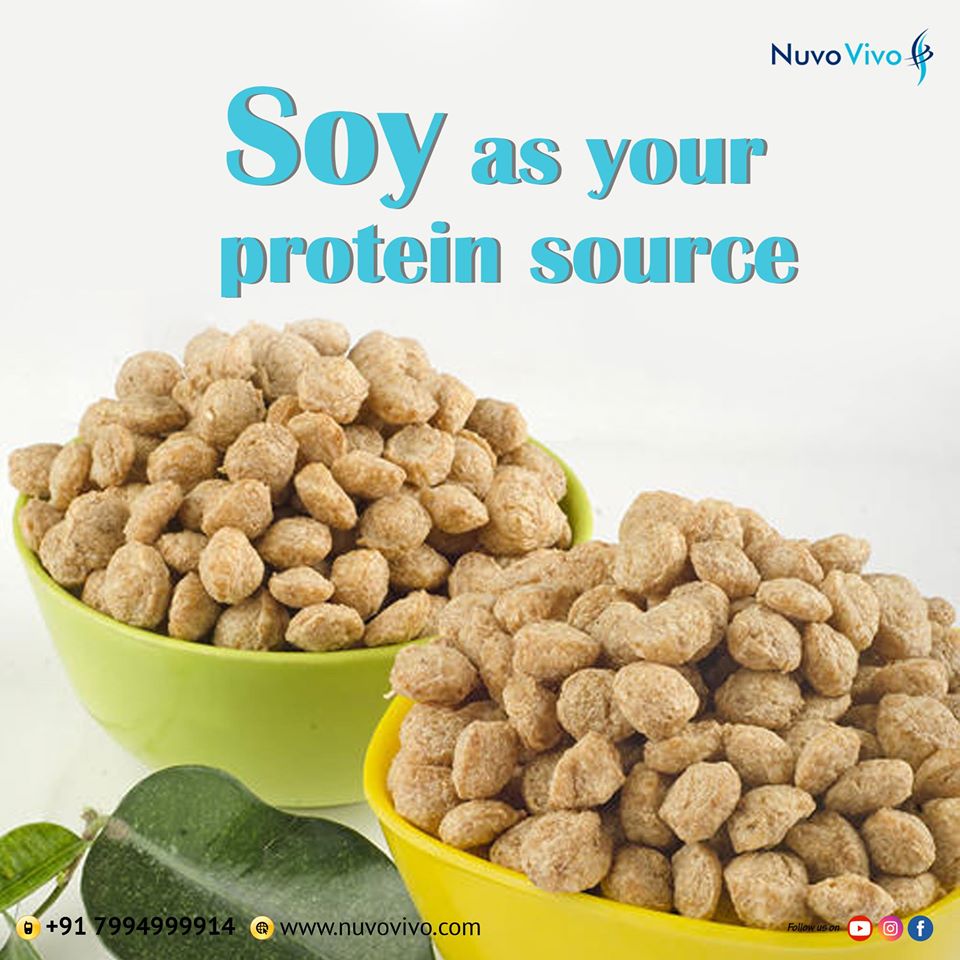Soybean is a type of legume that is very rich in protein. A variety of products such as Soy milk, Soy Chunks, Soy bean oil, Soy sauce ,Tofu etc are all made from Soy. In the image, you see Soy chunks, which is made using defatted soy flour (soy flour from which fat is removed). They are an excellent source of plant-based protein – that too a complete protein (i.e with all 9 essential amino acids) which is not typical of plant protein sources.
50 gms of soy-chunks have nearly 25 gms of protein and 17 gms of carbs, amounting to a total 168 calories. It is one of the few vegetarian sources of protein that has higher protein content than the carbs (all lentils, pulses etc has more carbs than protein). Similarly, Tofu made from Soy is an alternative for Paneer, but with much lesser fat content (hence lesser calories too)
Soy is a good source of several vitamins and minerals, including vitamin K1, folate, copper, manganese, magnesium, potassium, phosphorus, and thiamine (Vitamin B1). Soy also contains a molecule called isoflavones (also known as phytoestrogens or plant estrogen) which are very similar to the female sex hormone – estrogen.
There has been hence concerns on consuming soy chunks or soy products regularly among men as it feared to create hormonal balance and even gynecomastia (Man breasts). However, the scientific world is divided about this and no conclusive research evidence has been established through regarding the same. Especially the Asian population is a heavy consumer of soy milk and reported cases of gynecomastia is much lesser among Asian men than that of the western counterparts.
Soy has been shown to lower cholesterol, improve fertility outcomes and reduce menopause symptoms. However among women, soy is vilified and demonized for causing breast cancer if consumed in excess quantities. This is because most of the breast cancers need estrogen to grow and Soy has isoflavones (plant estrogen). Soy is also blamed to impact the thyroid function by blocking iodine absorption. However, all these claims remain highly controversial as they are only weak evidence and claims, most of it extrapolated from studies done on animals and not statistical evidence from human beings yet.
Overall, the benefits of incorporating soy into your diet most likely outweigh any potential risks, so feel free to eat whole or fermented soy foods in moderation.

